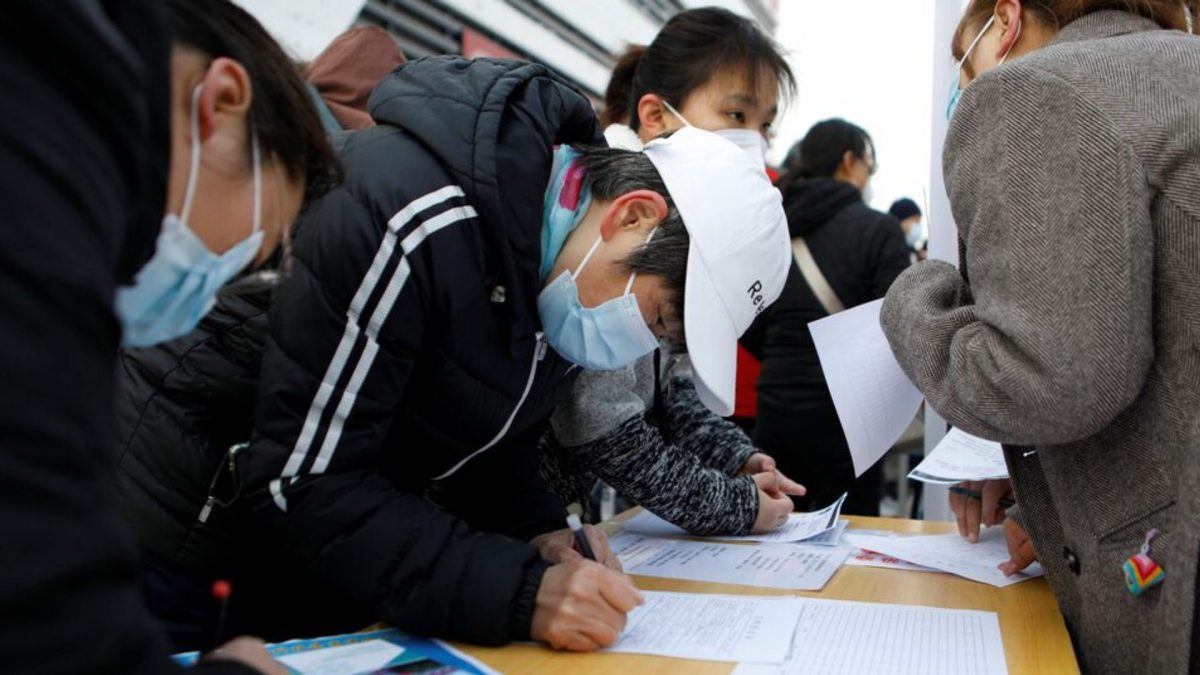In China’s struggling economy, stories of highly educated youth taking jobs far below their qualifications have become increasingly common. High-school handymen with master’s degrees in physics, cleaners trained in environmental planning and delivery drivers who studied philosophy highlight the mismatch between qualifications and available jobs.
Take Sun Zhan, a 25-year-old finance graduate with a master’s degree, who now works as a waiter in Nanjing. “My dream job was in investment banking,” Sun told the BBC. However, after months of fruitless job searching, he settled for work in a hot pot restaurant. His choice has drawn criticism from his family, who are embarrassed by his job and would prefer he pursued a public service role.
China’s economy, burdened by a protracted property crisis and weak domestic demand, has struggled to create enough jobs for the millions of university graduates entering the workforce each year. Youth unemployment hit a record 21.3% in June 2022, prompting authorities to halt the publication of unemployment data.
Many graduates, like Sun, face a difficult reality: taking positions far below their qualifications while grappling with societal and familial pressure. Yet, Sun remains optimistic, using his current role to learn the restaurant business to open his own establishment. “If I run a successful business, my family’s opinion will change,” he says.
China’s employment crisis highlights broader economic challenges, underscoring the urgent need for structural reforms to meet the aspirations of its highly educated youth.
Last month, The Chinese government urged local officials to provide more financial relief or step up one-time allowances to people in need ahead of major holidays over the next month, as China’s economic difficulties are set to extend into 2025.
Impact Shorts
More ShortsThe World Bank, in a report last month, said the pace of China’s poverty reduction slowed in 2024 and is expected to decelerate further in 2025 and 2026, due largely to slower economic growth projected in years to come.
Tepid household consumption, the main drag on the economy, is the key to next year’s growth recovery, analysts say. Policymakers have vowed to revive household demand.
In 2024, a record 3.4 million young Chinese flocked to the civil service exam, lured by the prospect of lifetime job security and perks including subsidised housing as an economic slowdown batters the private sector and youth unemployment remain high.
Applicant numbers, which surged by over 400,000 from last year and have tripled since 2014, reflect the huge demand for stability from disillusioned Gen Z Chinese and the lack of attractive options in the private sector even though local governments are struggling to pay wages due to a fiscal crisis.
Youth unemployment rates, which fell slightly in recent months, remain elevated compared to pre-pandemic figures as China’s economy struggles to recover amid a prolonged property sector crisis and frail consumption.
Beijing has long faced calls to reform its bloated state sector. Despite repeated downsising campaigns, China’s civil service jobs swelled from 6.9 million in 2010 to 8 million currently, with at least a further 31 million public employees such as school and hospital workers who have fewer employment protections than civil servants.
Chinese provinces have quietly cut tens of thousands of public sector positions since 2020, mostly through hiring reductions and attrition.
Wage arrears are “systematic and universal across the country, and are impossible to solve substantially in the short term,” said a governance professor at an elite Chinese university on condition of anonymity, adding that this could increase corruption as officials supplement their salaries through tips and bribes, as well as increased administrative fines for citizens.
“The most pressing issue now is social stability,” said the professor. “Therefore the lesser of two evils will cause the expansion of civil service hiring and the neglect of institutional reform.”
With inputs from agencies.


)

)
)
)
)
)
)
)
)



